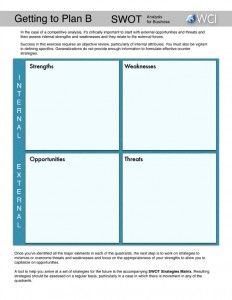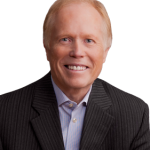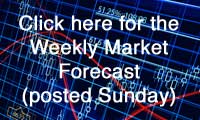| [videojs youtube=”https://youtu.be/d120SPpcQ70″ width=”720″ height=”405″] |
In the ’30s, ’40s, and 50s, several luminaries researched cycles in search of causes for the many recessions and depressions of the 19th and early 20th centuries. These well respected men each came to the same conclusions on their own, from different perspectives: cycles occur throughout nature and affect virtually everything we do here on Earth.
However, in the six most recent decades of expansion, much of their work has been ignored, as man’s hubris has taken over, governments have mushroomed, and technology has grabbed our focus as the magical answer to many of our problems. We somehow forget the fact that computers often spit out a convoluted version of what we put in.
When Economic downturns occur again (as they always do), humans revert back to seeking the truth as to why we can’t seem to control markets, climate, world health, or society in general. It eventually leads back to cycles, and they lead back to history.
| Those who do not remember the past are condemned to repeat it. |
| George Santayana |
My objective through the work that I do, is to instil in businesspeople the importance of an awareness of nature’s cycles and their affect on the business environment. Man is far from being in control of anything affected by nature—that includes markets, the mood of “the herd,” climate cycles, or trends. Our ancestors knew this; we have lost our way.
My programs focus on the practical application of cycles data to real world situations that affect us in business or in our personal life. By understanding cycles, we can live a more prosperous life, much less affected by the cyclical changes in the mood of the masses, changes in climate, or ups and downs in the economy.
Keynote:
Mother Nature Means Business!
 The world is in turmoil. Stock markets are dropping, oil has crashed to a multi-year low, the economy is questionable, and unrest has broken out just about everywhere. What can we make of it?
The world is in turmoil. Stock markets are dropping, oil has crashed to a multi-year low, the economy is questionable, and unrest has broken out just about everywhere. What can we make of it?
Lots, actually. In fact, it’s all been forecast many years ago—just another cycle that happens over and over again throughout recordable history, with a highly predicable rhythm. Nature’s cycles dramatically affect business, our general well-being, even the stock market.
We’re presently at the top of a major market downturn world-wide that will affect virtually every business, our freedom, personal safety, and health.
As a businessman or entrepreneur, it’s really important that you have a good grasp of how natural business cycles influence the playing field. It can spell the difference between financial failure and prosperity throughout your career.
In this session, Peter will take you back in time to show you how the past predicts the future.
You’ll learn:
- what the world’s richest individual knew in the 1800s and kept to themselves
- future social, business, and political trends
- the 172 cycle and its importance today
- about fiat money, spiraling deflation, inflation, and what’s next
- what tightening credit, increases taxes, and regulation mean to you
- how to protect and increase market share during the upcoming crisis
- how the stock market moves and why
- about the true value of money and future predictions for gold
- how central banks have made a bad situation much worse
- why our current banking system is flashing red
- how cycles telegraph the future of the economy
- how the next ten years will affect your business and your life
Breakout, board exercise, or intensive workshop
Getting to PLAN B
 PLAN B sessions must involve the key stakeholders in your business. Typically a full day, often stretching to multiple sessions, the focus is on identifying key strategies that will position your organization to take maximum advantage of the upcoming market downturn by understanding all the forces at play.
PLAN B sessions must involve the key stakeholders in your business. Typically a full day, often stretching to multiple sessions, the focus is on identifying key strategies that will position your organization to take maximum advantage of the upcoming market downturn by understanding all the forces at play.
The challenge, of course, goes beyond identifying strategies and action plans. Your organization, no matter how large or small, it like a ship on the ocean. Changing the mindset and culture of the organization is going to mean everyone at the top must be fully onboard. The weakest link is often the one responsible for sinking the ship in times of crisis.
This exercise will help you to identify specific threats to ongoing profitability and develop counter-strategies to survive and thrive during the coming financial crisis.
It can be scheduled as a short break-out session, a comprehensive board exercise and discussion, or an intensive full-day workshop. It can lead to a more in-depth review of your entire marketing and communication strategy.
Using the SWOT framework in a facilitated session, together we develop a strategic plan for the near future, right through implementation.
The next ten years could be the biggest opportunity in your lifetime if you’re prepared to take advantage of it!
SWOT
A SWOT exercise results in a strategic plan for the future for you or your organization. It concentrates on identifying the following factors underlying your organization’s economic prospects for the future:
- Strengths
- Weaknesses
- Opportunities
- Threats
Here are some of the areas addressed in a SWOT exercise:
Strengths and Weaknesses (Internal)
- Financial resources, such as funding, sources of income and investment opportunities
- Physical resources, such as your company’s location, facilities and equipment
- Human resources, such as employees, volunteers and target audiences
- Access to natural resources, trademarks, patents and copyrights
- Current processes, such as employee programs, department hierarchies and software system
Opportunities and Threats (External)
- Market trends, like new products and technology or shifts in audience needs
- Economic trends, such as local, national and international financial trends
- Funding, such as donations, legislature and other sources
- Demographics, such as a target audience’s age, race, gender and culture
- Relationships with suppliers and partners
- Political, environmental and economic regulations
Peter Temple is a futurist, market analyst, strategic thinker, and cycles expert. For the past seven years, he’s been researching, analyzing, and more recently, forecasting market trends, so you don’t have to. If you want to know what’s in store for the economy, social mood, trends, climate, or world health, WCI is the place to start.
| Contact Peter | |
|---|---|
 |
About Peter
(403) 264-9111 |



